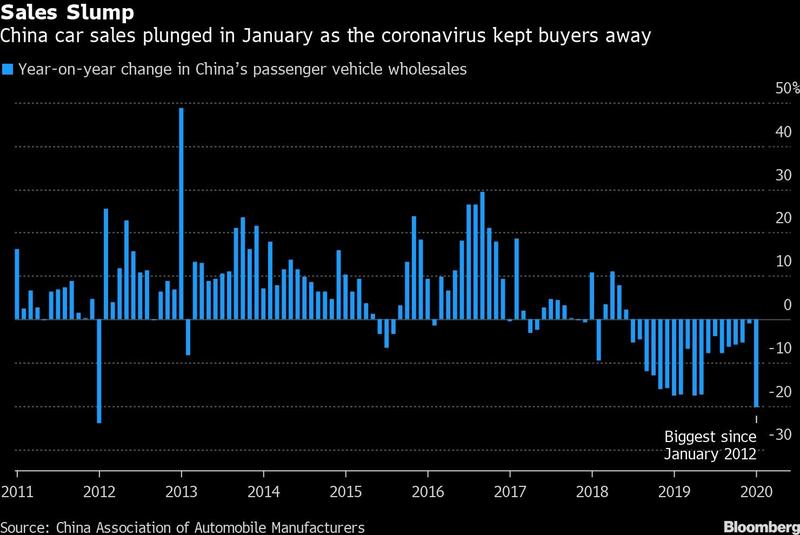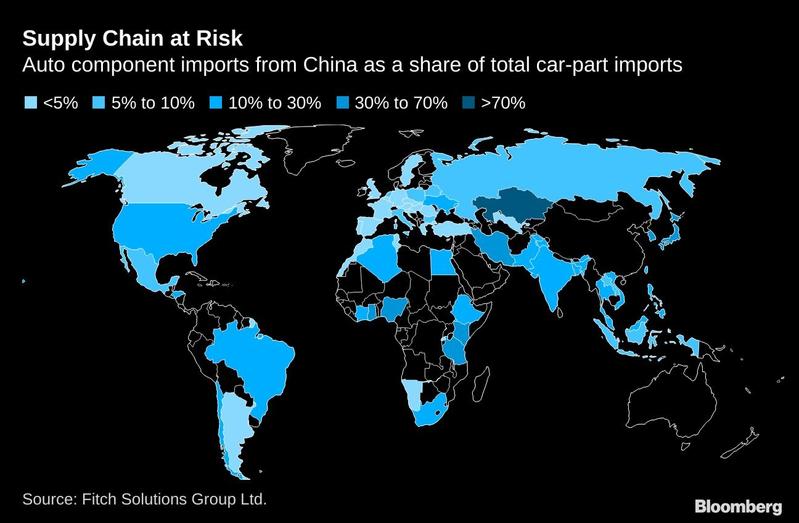 In this April 12, 2019 photo, workers are seen at a workshop of Dongfeng Honda's No 3 plant in Wuhan, capital city of central China's Hubei province. (PHOTO / XINHUA)
In this April 12, 2019 photo, workers are seen at a workshop of Dongfeng Honda's No 3 plant in Wuhan, capital city of central China's Hubei province. (PHOTO / XINHUA)
Car sales in China plunged to fresh lows in January as the coronavirus kept buyers away from showrooms, intensifying the gloom hanging over the industry.
Sales to dealerships fell 20 percent to 1.61 million cars last month, the China Association of Automobile Manufacturers (CAAM) said Thursday. That’s the biggest monthly drop since January 2012.
The outbreak is exacerbating manufacturer and dealership woes in the world’s biggest market. Sales were heading for an unprecedented third straight annual decline.
CAAM estimates the coronavirus outbreak will disrupt production of more than 1 million vehicles
ALSO READ: Jump in coronavirus cases stymies stock rally
CAAM estimates the coronavirus outbreak will disrupt production of more than 1 million vehicles, it said.
Electric vehicles led the decline, with January new-energy vehicle sales falling 54 percent. EVs and traditional premium models will suffer the most from the outbreak because sales of those vehicles are concentrated in the biggest cities, which happen to be the ones most affected by the epidemic, according to Robin Zhu, an analyst at Sanford C. Bernstein & Co.
Electric-car sales have already been plunging for months in China, the world’s biggest market for such vehicles, after the government scaled back purchase subsidies in July. Tesla Inc, which started deliveries a few weeks ago from its new Shanghai factory, its first outside the US, has been bucking the trend with increasing registrations.
Another industry body, China Passenger Car Association, is set to report retail car sales numbers for January later on Thursday. The group predicted this month that the virus outbreak will likely drag down full-year auto sales by as much as 5 percent, with sales in January-February plunging as much as 30 percent.

Carmakers are particularly vulnerable because Hubei is China’s fourth-largest auto-making hub and home to factories of companies ranging from Dongfeng Motor Corp to Honda Motor Co and General Motors Co.
Companies such as market leader Volkswagen AG to Tesla and Toyota Motor Corp have warned of disruptions in their operations. Automakers probably will dial back production by 15 percent in China this quarter after extending holiday shutdowns because of the virus, supplier Aptiv Plc estimated.
READ MORE: AI contributes to coronavirus diagnosis
While factories and dealers are gradually starting to resume operations after two weeks’ suspension, massive challenges remain. A majority of dealerships remained closed this week for failing to meet the government’s criteria to resume business, and inventories are at elevated levels. As of Wednesday, 59 of China’s 183 auto-industry production bases tracked by CAAM had resumed output, according to the association.

The outbreak has also endangered component supply. Parts manufacturers across China have suspended production through last week and in the case of Wuhan city and the surrounding Hubei province, factories are still largely closed.
That leaves car plants at risk also outside China: South Korea’s Hyundai Motor Co and Japan’s Nissan Motor Co are among carmakers that have halted some production in their home countries because of component shortages caused by the virus.


